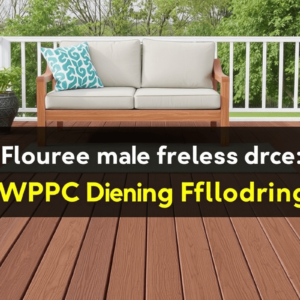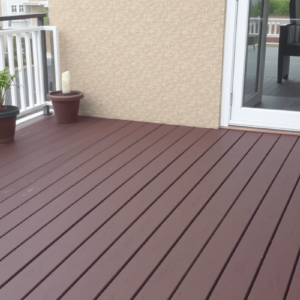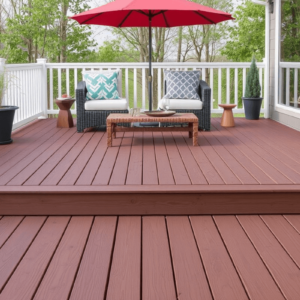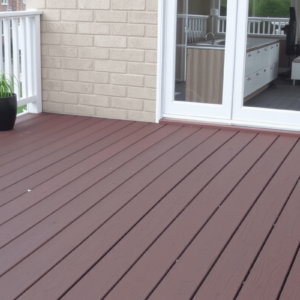Price per Square Foot Composite Decking vs Wood
Introduction
When it comes to choosing between composite and wood decks, homeowners often find themselves torn between aesthetics, cost, and durability. Both materials have their unique advantages and disadvantages, which can significantly affect the overall price per square foot over time. This article will detail the initial installation costs, ongoing maintenance expenses, durability, and aesthetic appeal of composite versus wood decks, discussing how these factors influence the price per square foot over time.
Initial Installation Costs
The initial installation cost is a critical factor when comparing composite decking vs. wood. According to a report by HomeAdvisor, the average cost to install a wood deck is $15 to $25 per square foot, while composite decking typically ranges from $25 to $45 per square foot. However, the actual cost can vary based on factors such as the size of the deck, quality of materials, and complexity of design. For example, a basic 200-square-foot wooden deck might cost around $3,000 to $5,000, whereas a similar-sized composite deck could range from $5,000 to $9,000.
Ongoing Maintenance Expenses
Maintenance costs are another important aspect to consider. Wood decks require regular staining or sealing every one to three years to maintain their appearance and protect against moisture damage. On the other hand, composite decks typically require minimal maintenance, with only occasional cleaning needed. A study by the University of Kentucky found that the annual maintenance cost for a wood deck can be as high as $500, compared to about $100 for a composite deck. Over time, this difference in maintenance costs can significantly impact the total price per square foot.
Durability and Longevity
In terms of durability, composite decking generally outperforms wood. Composite materials are resistant to rot, insects, and weather-related wear and tear. They do not splinter, crack, or warp like wood, making them a more durable option in the long run. The longevity of a composite deck can last up to 25-30 years with proper care, while a wood deck may need replacement or extensive repairs after 15-20 years. According to the Composite Panel Association, composite decks have a lifespan that is 2-3 times longer than traditional wood decks, reducing the frequency of replacements and lowering the overall price per square foot over time.
Aesthetic Appeal
Aesthetic appeal is subjective and can vary widely among homeowners. Wood decks offer a natural, warm look that many people find appealing. However, composite decking has come a long way in recent years and now offers a variety of colors and textures that mimic the look of natural wood. Some composite materials even have the added benefit of being slip-resistant, making them safer for use around pools or in areas with frequent rain. While wood decks may initially have an edge in aesthetic appeal, the advancements in composite technology make it a strong competitor in this area as well.
Conclusion
When considering the price per square foot of composite decking vs. wood, it’s essential to weigh the initial installation costs, ongoing maintenance expenses, durability, and aesthetic appeal. While composite decking may have a higher upfront cost, its lower maintenance requirements and increased durability can result in a more cost-effective solution over time. Ultimately, the choice between composite and wood decking depends on individual preferences, budget, and long-term goals.
Reference
HomeAdvisor, University of Kentucky, Composite Panel Association





Reviews
There are no reviews yet.